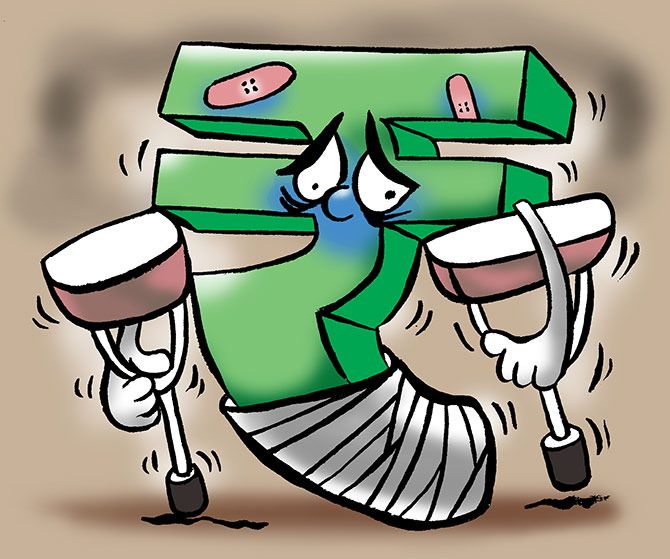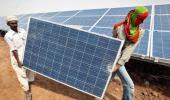The Indian rupee is down nearly 2 per cent against the US dollar since the beginning of January 2019. Experts attribute the Indian rupee’s relatively poor performance to a sharper-than-expected fall in economic growth in India.

A sharp deceleration in economic growth and surge in inflation have begun to weigh on the rupee exchange rate.
The Indian rupee has become one of the worst performers among its Asian peers in the past one year, with the exception of the South Korean won and the Pakistani rupee.
The Indian rupee is down nearly 2 per cent against the US dollar since the beginning of January 2019, against 6.3 per cent appreciation in the Thai baht, 1.5 per cent appreciation in the Malaysian ringgit, and 3 per cent gains logged by the Philippines peso against the US dollar in the period.
The Chinese renminbi is down 0.4 per cent against the dollar in the past one year (see chart).

Experts attribute the Indian rupee’s relatively poor performance to a sharper-than-expected fall in economic growth in India.
“There is strong correlation between the strength of a currency and economic growth in the issuing country.
"India has seen one the biggest falls in growth of gross domestic product among its peers, leading to downward pressure on the currency,” says G Chokkalingam, founder and managing director, Equinomics Research & Advisory Services.
According to Chokkalingam, the Indian rupee depreciated despite $20 billion worth of foreign capital inflow in equity and debt market in calendar year (CY) 2019.
“Capital inflows cushioned the blow for the rupee. For example, the rupee was down nearly 20 per cent in 2008 as the Lehman crisis led to a sharp fall in economic growth in India,” he adds.
Capital inflows into India improved after the cut in corporate tax in September last year, which subsequently led to a rally in stock prices.
The data suggests that the Bangladesh taka is now faring better than the Indian rupee.
The taka is down 1.5 per cent in the past 12 months, outperforming the Indian rupee by 100 basis points (bps, or bips).
One basis point is one hundredth of a per cent.
The Pakistani rupee is the one the worst performers and is down 9.5 per cent in the past 12 months.
It is currently trading at Rs 154.4 to a dollar, against Rs 139.8 to a dollar a year ago.
The Pakistani rupee is followed by the South Korean won, which has lost nearly 5 per cent of its value against the dollar.
It is currently trading at 1,167.1 to a dollar.
India’s economy is expected to grow by 5 per cent in FY19-20 at constant prices, down 183 bips from 6.8 per cent growth a year ago.
This is one of the sharpest declines in economic growth in any major emerging economy, according to the latest World Economic Outlook database by the International Monetary Fund (IMF).
The data includes high income and trade-sensitive city states, such as Hong Kong and Singapore.
Economic activity in the former has taken a beating from the ongoing protests again Chinese rule, while Singapore has been hit hard by a fall in global trade volume due to the US-China trade war.
Among Asian economies, only Pakistan is expected to see a sharper decline in economic growth in 2019.
According to the IMF, Pakistan’s economy is expected to grow by 3.3 per cent in 2019, against 5.5 per cent growth in CY2018 (CY18).
In contrast, growth deceleration is expected to be much milder in most countries in Southeast Asia.
For example, the Indonesian economy is expected to grow by 5 per cent in 2019 - down 14 bips on a year-on-year basis.
The corresponding change is expected to be -50 bips in the Philippines, -20 bips in Vietnam, -40 bips in China, -10 bips in Bangladesh, and 70 bips in South Korea.
The depreciation in the Indian rupee in 2019 came on the back of an 8 per cent depreciation in CY18.
With this, the rupee has lost value in four of the last five calendar years and eight of the last 10 calendar years.












 © 2025
© 2025